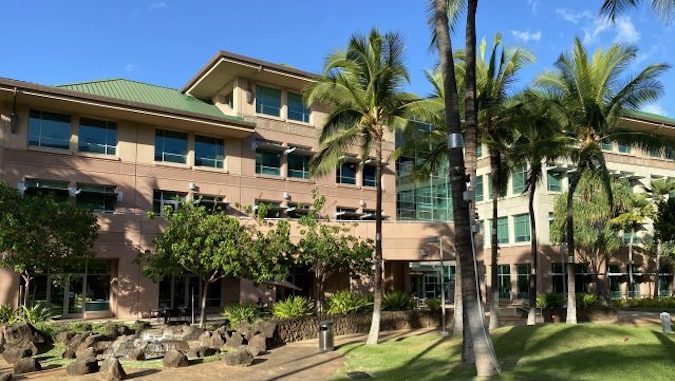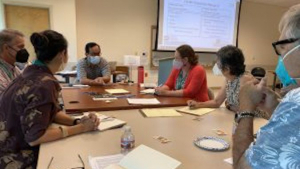
Hawaiʻi has the highest life expectancy at birth, according to the Centers for Disease Control and Prevention. Still, that success is not reflected in Native Hawaiian and other Pacific Islander (NHOPI) populations. State data show NHOPI have seven to 10 years less in life expectancy than other Hawaiʻi residents, and researchers from the University of Hawaiʻi at Mānoa John A. Burns School of Medicine (JABSOM) and other UH health sciences units are investigating the sources of the disparities and ways to close the gap.
The National Institutes of Health (NIH) awarded Ola HAWAIʻI researchers a five-year, $22,557,840-million U54 grant to foster research into health disparities and to conduct three large studies to explore genetic, environmental and socio-economic related disparities in health and health-care access for specific communities in Hawaiʻi. Specifically, the studies focus on the long-term impact of COVID-19, the role of exercise with type 2 diabetes and dietary impacts on the Native Hawaiian population.
JABSOM Dean Jerris Hedges and Thompson School of Social Work & Public Health Dean Emeritus Noreen Mokuau serve as multiple principal investigators for Ola HAWAIʻI.
Hedges said, “This grant helps unite UH and community members seeking to improve health in Hawaiʻi through sound science.”
“Funding from the NIH is the premiere form of health research funding because everything you do for NIH connects back to the larger, national agenda on public health and healthcare,” said Mokuau.
Based at JABSOM, Ola HAWAIʻI (Ola means health or to heal in Hawaiian, and HAWAIʻI stands for Health And Wellness Achieved by Impacting Inequalities) collaborates with community and UH Mānoa partners. Ola HAWAIʻI investigators seek to close the health and longevity gap between NHOPI and the rest of Hawaiʻi‘s population through biomedical, behavioral and clinical research.
“It’s about seeding ideas that best benefit the people of Hawaiʻi, in areas such as cardiovascular health, diabetes and COVID-19,” Mokuau added. “The John A. Burns School of Medicine is the essential leader in the state of Hawaiʻi for health, in general, and in reducing health care disparities in particular. Ola HAWAIʻI‘s work focuses on the kinds of research that help us find new interventions and treatments to support underserved populations who sometimes have less direct access to health care.”
“As we conduct research that will lead to interventions which help people, at some point, we begin to extend and enhance lives. That’s what this is about.”
The three projects part of the grant include:
Exercise, Exosomes & Metabolic Health in Type-2 Diabetes

Native Hawaiians and other Pacific Islanders are disproportionately affected by type 2 diabetes. While exercise can successfully reduce the risk of developing type 2 diabetes, the exercise benefits for the NHOPI population are not as significant when compared to Whites. This study will investigate the role that nano-sized sacs play in lowering the risk of diabetes while identifying exercise and lifestyle guidelines that could be tailored for the NHOPI population. Noemi Polgar, Nicholas James and Scott Ferguson are the principal investigators.
MALAMA: Backyard Aquaponics to Promote Healthy Eating & Reduce Cardiometabolic Risk
Native Hawaiians have the highest mortality rates of cardiometabolic diseases, like heart disease and diabetes. Researchers are testing the efficacy of MALAMA, a culturally-grounded, family-centered backyard aquaponics program that’s planted in multiple Native Hawaiian communities. The goal is to reduce food insecurity, while increasing the consumption of healthy foods, which could lower the risk of cardiometabolic diseases in the Native Hawaiian population. Jane Chung-Do and Heidi Ilima Ho-Lastimosa are the principal investigators.
Factors Responsible for the Development of Post-Acute Sequelae of Acute COVID Infection in Hawaiʻi
Nearly a third of people who recover from acute COVID-19 will have what’s known as long-COVID. Many of those with long-COVID also have pulmonary problems like persistent cough and labored breathing. Researchers are investigating the change in the body’s function that causes disease, and how social and psychological situations could contribute to long-term outcomes, particularly for Native Hawaiians and other Pacific Islanders and Filipinos. Gehan Devendra and Juwon Park are the principal investigators.

